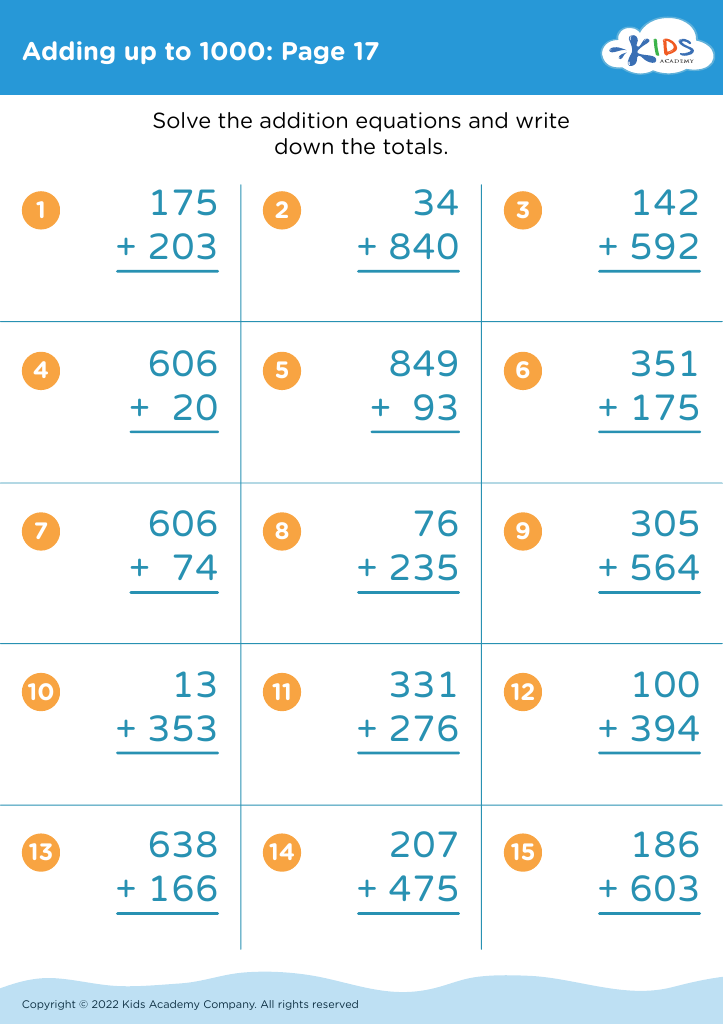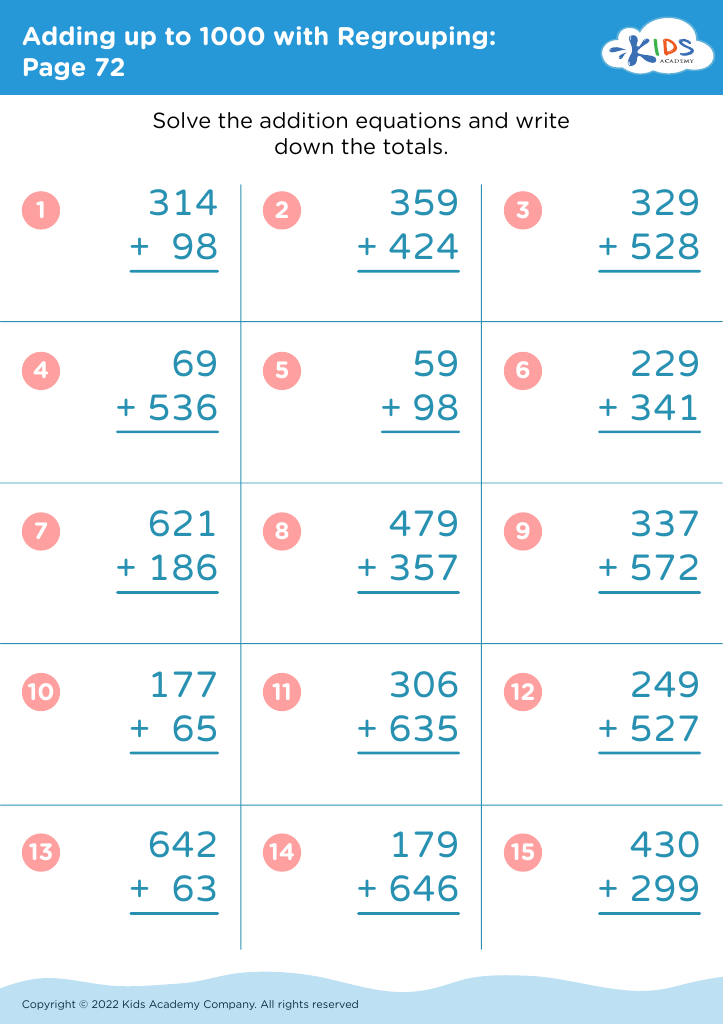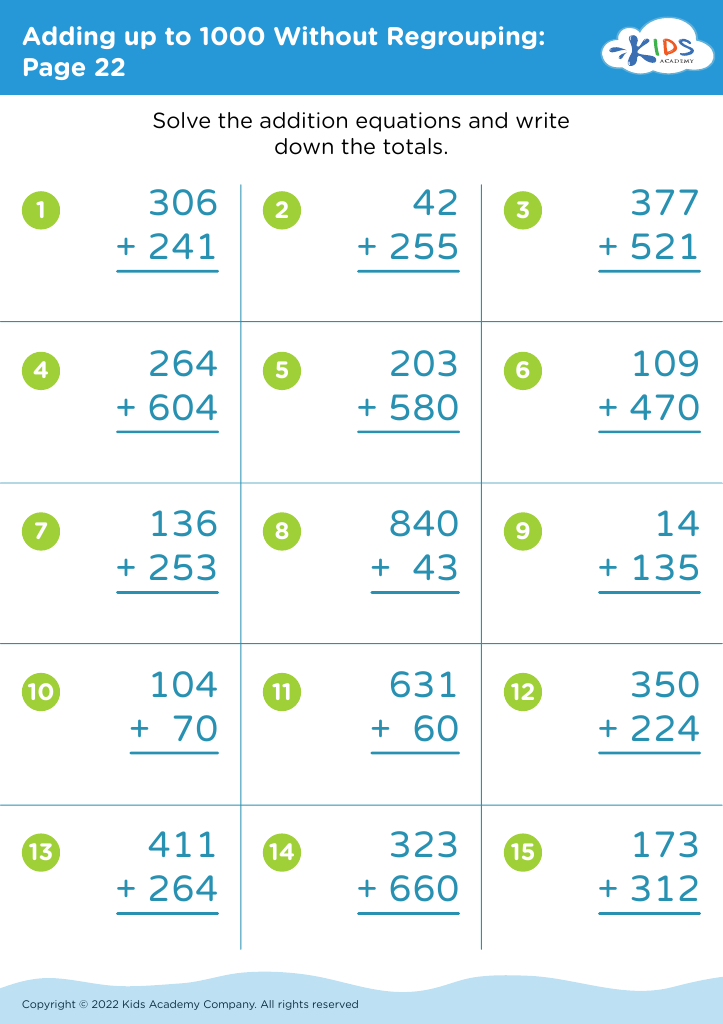Problem Solving Adding up to 1000 Worksheets for 7-Year-Olds
3 filtered results
-
From - To
Enhance your 7-year-old's math skills with our engaging "Problem Solving Adding Up to 1000 Worksheets". Designed to make learning fun and interactive, these worksheets help young learners develop critical thinking abilities while mastering addition up to 1000. Each worksheet features diverse word problems that encourage problem-solving strategies, mathematical reasoning, and number sense. Tailored to support classroom learning or at-home practice, our resources foster confidence in young mathematicians. Whether your child is just starting or needs extra practice, these worksheets offer the perfect balance of challenge and enjoyment. Empower your child with essential math skills today!
Problem solving with addition up to 1000 is essential for 7-year-olds as it builds a strong mathematical foundation that extends beyond the classroom. At this age, children develop critical thinking skills and learn how to approach challenges methodically. Engaging in problem-solving with larger numbers helps them understand and navigate addition concepts more thoroughly, such as regrouping and using number lines.
Additionally, these skills foster confidence in their abilities. When children tackle problems that require them to reach up to 1000, they engage with real-life situations where such calculations are applicable, from budgeting allowances to measuring ingredients in cooking. This relevance to their everyday experiences makes learning more engaging and meaningful.
Furthermore, parents and teachers play a vital role in nurturing a positive attitude towards math. Encouraging children to solve problems helps them embrace mistakes as learning opportunities, promoting resilience in the face of challenges. Finally, equipping 7-year-olds with robust problem-solving skills lays the groundwork for success in future academic endeavors, as well as in real-world situations, where strategies, logic, and numeracy are paramount. By caring about this skill set, adults can guide children toward becoming adept and confident problem-solvers.



















